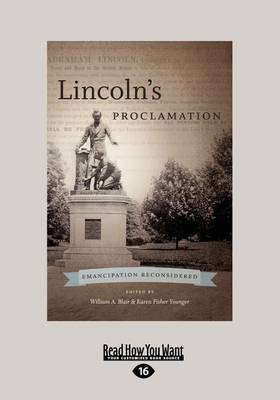1
1 total work
Set
Analysts as diverse as Frederick Douglass and historian Richard Hofstadter have ardently criticized Lincoln's "passive" attitude toward abolition. These critics frequently point out that the Emancipation Proclamation was, in practical terms, meaningless, since it freed only those slaves in areas under Confederate control and left slaves in the Union border states in bondage. In this fine work of counter revisionism, history professor Guelzo strives to resurrect the traditional image of Lincoln as the Great Emancipator. Despite Lincoln's frequent assertions that the preservation of the Union was his paramount goal, Guelzo insists that Lincoln was committed to abolition once hostilities commenced. His repudiation of efforts by John Fremont to liberate slaves were merely tactical retreats, according to Guelzo, and when he deemed the moment appropriate, Lincoln struck a mortal blow against the institution. Guelzo marshals considerable evidence to support his views, but this is hardly the final word on the subject. Still, his work is a valuable counterweight to those who too easily dismiss the importance of the document and Lincoln's role in eliminating slavery. Jay Freeman.
